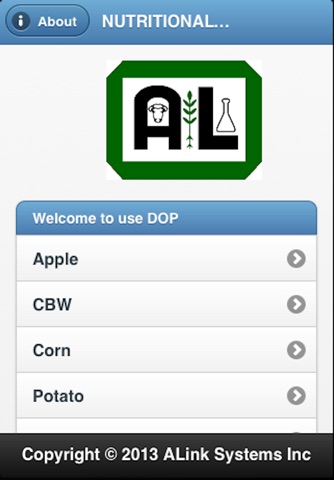
DEVIATION OPTIMUM PERCENTAGE
Développeur A&L Canada Laboratories Inc.
DOP IS A NEW METHODOLOGY FOR PLANT MINERAL ANALYSIS INTERPRETATION AND DIAGNOSIS THAT CAN PROVIDE INFORMATION, BOTH ON THE QUALITATIVE AND QUANTITATIVE ASPECTS OF NUTRITION. DOP ALLOWS FOR THE SIMULTANEOUS EVALUATION, IN A GIVEN SAMPLE, OF THE NUTRIENT CONCENTRATIONS, NUTRITIONAL BALANCE AND ORDER OF LIMITATION OF NUTRIENT OF NUTRIENT CONTENTS.
Plant analysis is a useful tool for the assessment of the nutritional status of crops. Plant analysis is required, together with soil analysis, in the design of adequate fertilizer programs and in the evaluation of soil nutrient use and efficiency by crops. In most cases, once the plant sampling and analytical methods have been standardized, the interpretation of results is carried out based on “classical” concepts such as concentration on dry matter basis, sufficiency ranges, standard and critical values, nutrient balance, nutrient rations, etc.
The plant analysis interpretation based on the new Deviation from Optimum Percentage (DOP), is an excellent methodology for plant mineral analysis interpretation. The use of DOP to understand plant nutrient status is another management tool used today to understand the possible nutrient deficiencies that may reduce yield and quality. An optimum nutritional situation for any element is DOP index equal to zero. The DOP index permits us to grade the nutrient limitation order in a given sample, giving information similar to that obtained with a DRIS method. Furthermore, the DOP indexes indicate whether an element is in defect (negative indexes) or excess (positive indexes). A negative DOP value will require monitoring of this nutrient. If the DOP index is less than –12 then the nutrient is in the critical stage and a corrective treatment should be done. Any nutrient above zero does not become a concern until the levels exceed +20. At this point, the nutrient may be causing an antagonism with another nutrient and inducing a deficiency.



